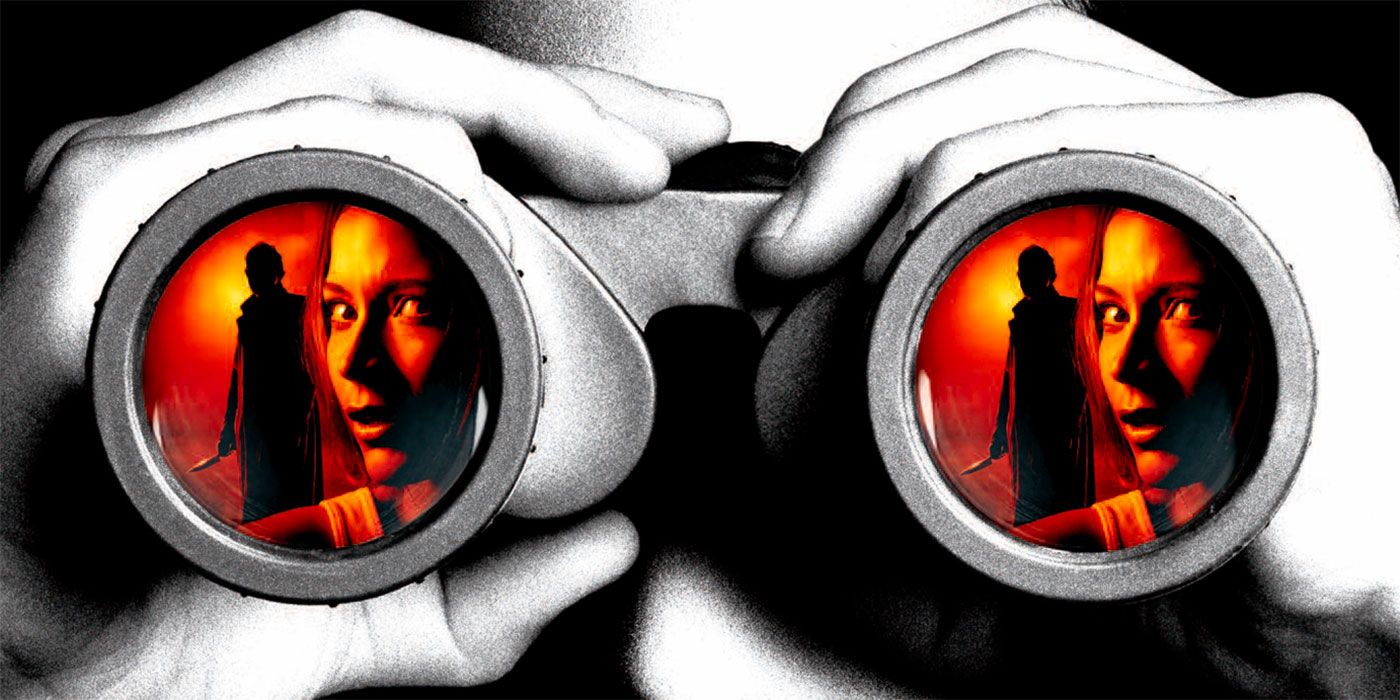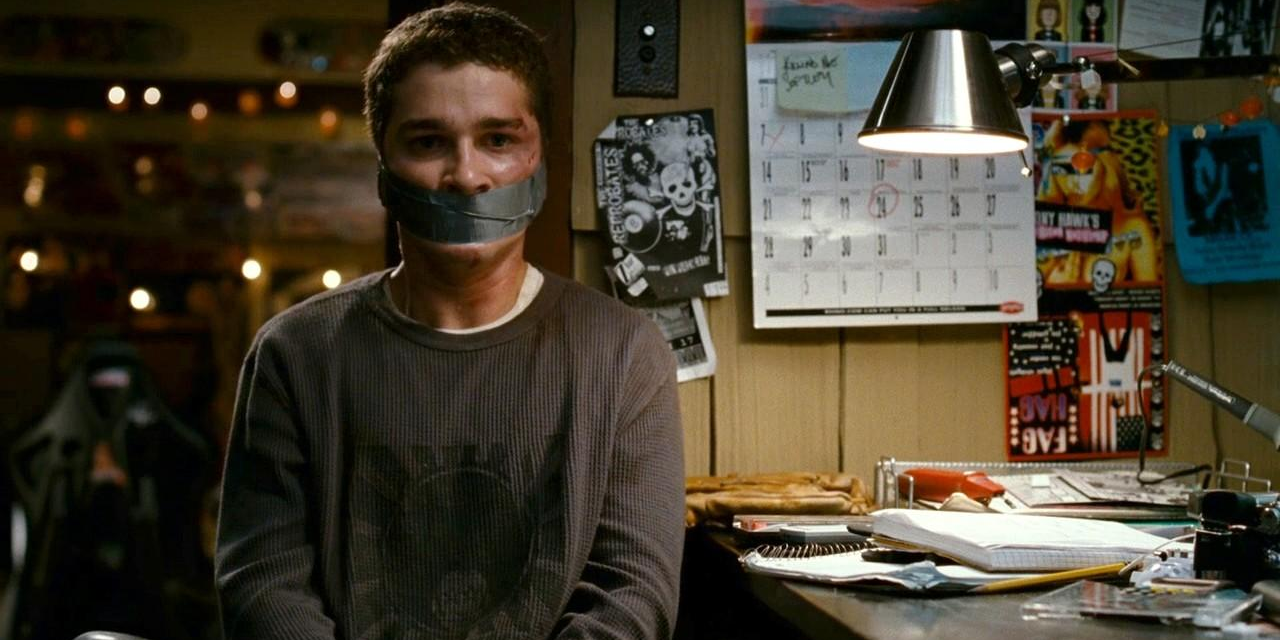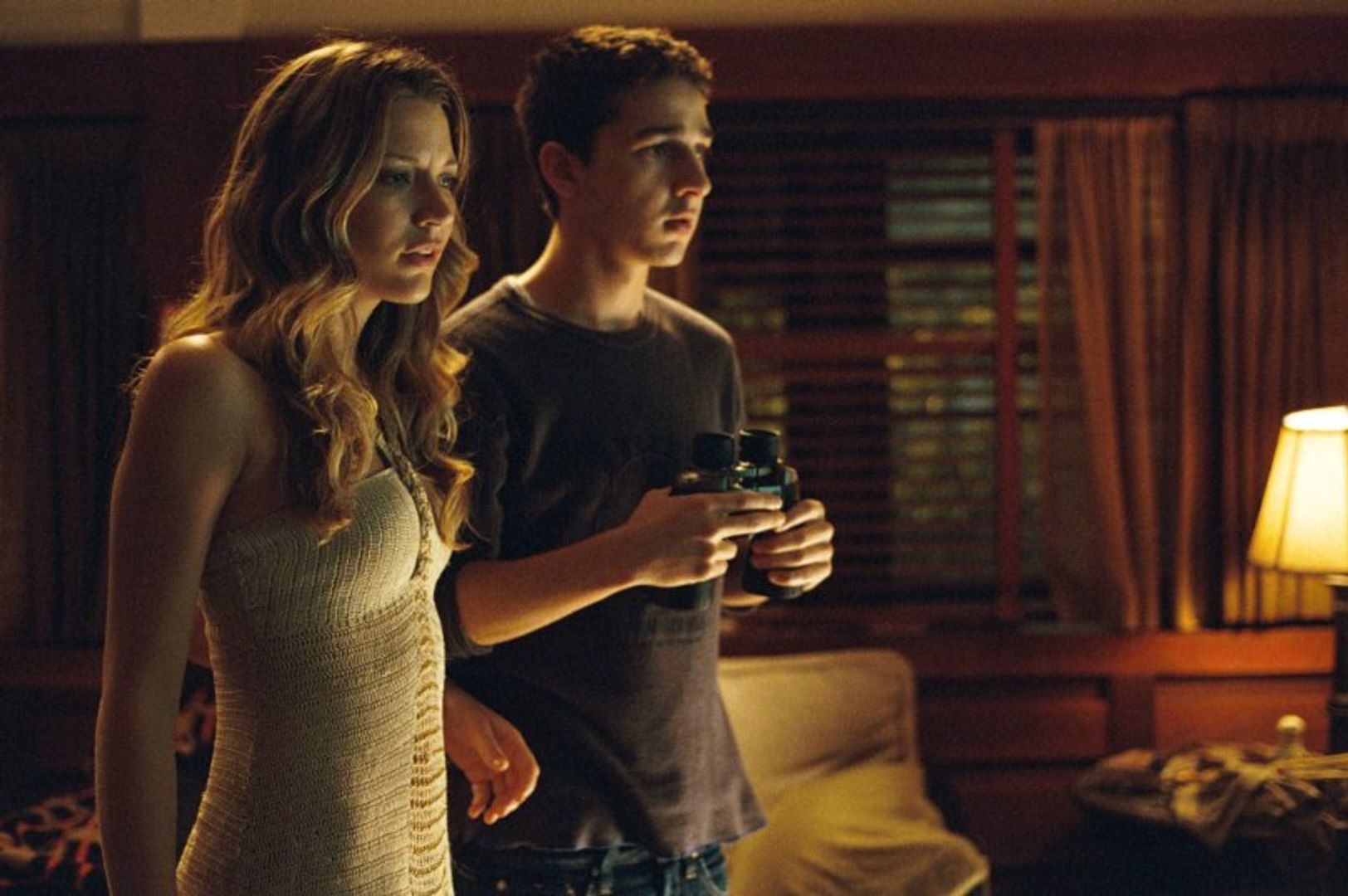2007’s Disturbia was a modern reimagining of the Alfred Hitchcock classic Rear Window. The idea of remaking one of Hitchcock’s best movies may not sound like a good one on paper, but director D. J. Caruso did an admirable job with Disturbia. It was mostly well-received by critics, and a huge box office success. Shia LaBeouf was terrific as Kale Brecht, a troubled 17-year-old placed under house arrest for assault. To cope with the boredom, he begins to spy on his neighbor, the mysterious Robert Turner (David Morse) and starts to suspects he may be a serial killer. With the help of his friend Ronnie (Aaron Yoo) and love interest Ashley (Sarah Roemer), Kale sets out to prove Robert’s guilt.
The relatively slow pacing was a turn-off for some audiences, but those who stuck with it were rewarded with a perfectly satisfying ending. All the suspicious activity surrounding Robert comes to an electrifying end as Kale’s intuitions are proved correct. Morse does a superb job at creating doubt in the audience, as just as it looks like a sure thing that he is a killer, he comes up with a potentially innocent explanation. His amiability and friendliness towards Kale and his mother (Carrie-Anne Moss) is convincing, but by the time the movie’s final twenty minutes comes, it is pretty clear that he is not who he tries to appear to be. This does not make the revelation scene any less impactful though, as it cleverly entwines Kale finding concrete evidence with Robert attacking his mother. Morse smartly keeps his performance consistent by keeping a relatively calm composure and speaking softly despite everything. After kidnapping Kale’s mother and dispatching of Ronnie, a final confrontation between Kale and Robert is set up.
In the initial revelation, Robert’s demeanor remains unchanged. The tension is incredibly high as he chases Kale through the garden before he can get away. Earlier on, Kale had tied a piece of string around his garden at the point where he cannot cross without the police being informed, and that is where he aims to pass. Robert catches up to him though, ties him up and composedly explains how he plans to kill him and make it look like a suicide by writing a note which blames Kale for everything. The arrival of Ashley interrupts this plan, and gives Kale the much-needed upper hand. While Kale is unsuccessful in his first attempt to escape from Robert, his decision to immediately aim to notify the police is surprisingly refreshing. Too often the horror/thriller genre is criticized for characters’ making poor decisions. Sometimes the laughably bad decisions can enhance the fun factor experience, but when the genre is aiming for sincerity, it can take audiences out of the story and leave behind an unfulfilled feeling.
The final moments of Disturbia are more effective for the no-nonsense approach the protagonists take. Kale and Ashley team up against Robert, and it makes for gripping viewing for how they behave believably when faced with such a threat. Their prior suspicions of Robert mean they waste no time in fighting back against him, and they both quickly establish a plan on how to defeat him and find Kale’s mother. The franticness of the situation comes off well, and increases the intensity of the whole sequence. It manages to avoid obvious tropes or clichés in its finale with their main priority being to notify the police. Even though the arrival of the police proves ineffective, it still makes for a compelling watch as Robert pursues them.
While Kale himself is certainly a flawed character, he proves himself against Robert when it matters. When he finds his mother and faces his foe for the last time, he seizes his opportunity to kill him in an instant. Though the actual fight between the two of them is barely a minute long, it is a brilliant crescendo of intensity, and it is very satisfying to see Kale’s quick thinking outsmart Robert. His mother does enough to distract Robert for a few seconds, and Kale wastes no time in stabbing him with a pair of garden shears. Not only does he stab him, but he ensures he kills him too as he brutally bounces him off the walls before shoving him down a hole in the floorboards. Horror movies have long succumbed to the temptation to imply the villain may still be alive, but Disturbia does not do that, and it is all the more worthwhile for it. There was no reason to imply Robert may still be alive, and Caruso has enough respect for his audience to avoid this temptation.
Caruso noticeably avoids jumpscares too. Rarely do loud noises accompany Robert’s presence, instead he just simply appears. One of the biggest scares the movie offers is when Kale first discovers his mother tied up and as he sets her free, she falls into Robert’s arms who was hiding in the darkness behind her. What makes Robert so terrifying once his true identity has been uncovered is how in control he seems to be. He is patient in his menace, and Caruso’s crafty direction often shows his positioning before he strikes. Instead of popping out to cheaply surprise the audience, we see him standing behind Ronnie with a baseball bat before hitting him, and hiding around a corner before attacking a cop – these moments demonstrate his astute abilities and are in keeping with his deceptively calm persona.
While Caruso has clearly taken inspiration from the Master of Suspense himself, he still manages to create a situation that is just as thrilling, even without the advantage of the confining apartment where Rear Window took place. Expansion on the setting and Kale not being incapacitated like L. B. Jefferies (James Stewart) gives the characters more of an advantage, but that does not diminish the tension in any way. Disturbia benefits hugely from its smart protagonists and audiences are rewarded with a great game of cat-and-mouse in the finale. Far from a perfect movie, but not so far from a perfect ending, Disturbia is a standout thriller from the mid-noughties.



